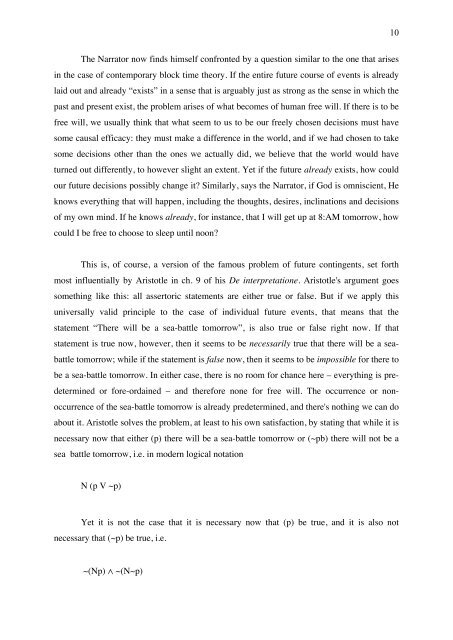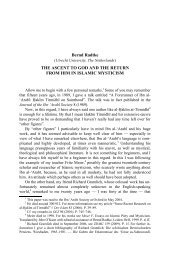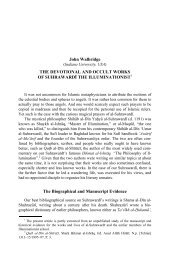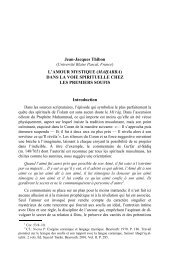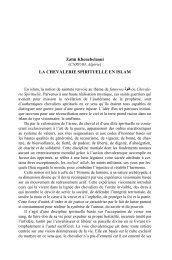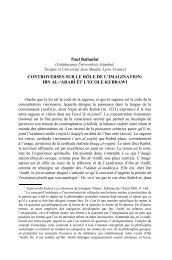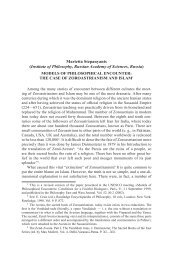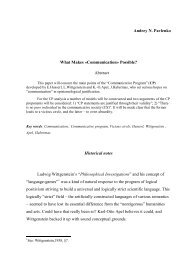Bothius talk DEF
Bothius talk DEF
Bothius talk DEF
Create successful ePaper yourself
Turn your PDF publications into a flip-book with our unique Google optimized e-Paper software.
10<br />
The Narrator now finds himself confronted by a question similar to the one that arises<br />
in the case of contemporary block time theory. If the entire future course of events is already<br />
laid out and already “exists” in a sense that is arguably just as strong as the sense in which the<br />
past and present exist, the problem arises of what becomes of human free will. If there is to be<br />
free will, we usually think that what seem to us to be our freely chosen decisions must have<br />
some causal efficacy: they must make a difference in the world, and if we had chosen to take<br />
some decisions other than the ones we actually did, we believe that the world would have<br />
turned out differently, to however slight an extent. Yet if the future already exists, how could<br />
our future decisions possibly change it? Similarly, says the Narrator, if God is omniscient, He<br />
knows everything that will happen, including the thoughts, desires, inclinations and decisions<br />
of my own mind. If he knows already, for instance, that I will get up at 8:AM tomorrow, how<br />
could I be free to choose to sleep until noon?<br />
This is, of course, a version of the famous problem of future contingents, set forth<br />
most influentially by Aristotle in ch. 9 of his De interpretatione. Aristotle's argument goes<br />
something like this: all assertoric statements are either true or false. But if we apply this<br />
universally valid principle to the case of individual future events, that means that the<br />
statement “There will be a sea-battle tomorrow”, is also true or false right now. If that<br />
statement is true now, however, then it seems to be necessarily true that there will be a seabattle<br />
tomorrow; while if the statement is false now, then it seems to be impossible for there to<br />
be a sea-battle tomorrow. In either case, there is no room for chance here – everything is predetermined<br />
or fore-ordained – and therefore none for free will. The occurrence or nonoccurrence<br />
of the sea-battle tomorrow is already predetermined, and there's nothing we can do<br />
about it. Aristotle solves the problem, at least to his own satisfaction, by stating that while it is<br />
necessary now that either (p) there will be a sea-battle tomorrow or (~pb) there will not be a<br />
sea battle tomorrow, i.e. in modern logical notation<br />
N (p V ~p)<br />
Yet it is not the case that it is necessary now that (p) be true, and it is also not<br />
necessary that (~p) be true, i.e.<br />
~(Np) ∧ ~(N~p)


